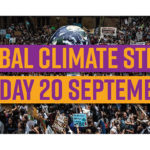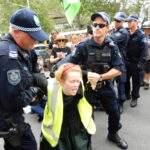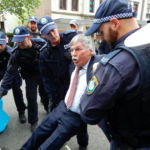Your PM Is an Arsonist: An Interview With Climate Expert Dr Saleemul Huq
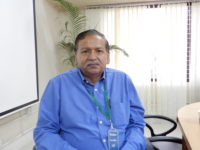
As 2019 tips over into 2020, the bushfire crisis continues to sweep through Australia. And after more than two months of constant flames in the eastern states, prime minister Scott Morrison is still no closer to admitting that the climate crisis could be a contributing factor to the fires.
Indeed, our PM appeared in parliament back in 2017 with a lump of coal in hand and announced to the nation that it was nothing to be afraid of, while last May, when he looked set to lose the national election, he forced through the final federal tick of approval on the Adani coal mine in Queensland.
In mid-November, when Morrison, McCormack and Berejiklian in NSW told the Australian public that we weren’t allowed to broach the subject of climate in relation to the unprecedented bushfire outbreak, over in Bangladesh the nation was bracing for yet another cyclone.
Tropical Cyclone Bulbul hit land in the low-lying western coastal regions of that country on 9 November. Over 2 million people were evacuated to cyclone shelters, around 4,000 homes were destroyed, and no one was denying that intensifying climate changes had something to do with it.
Paying for the excess of others
What’s happening in Australia in terms of an intensified and extended bushfire season right now, has long been happening in Bangladesh in regard to cyclones. Rising temperatures in the Bay of Bengal have led these tropical storms to become stronger and more prevalent.
A recently released Pentagon commissioned US military report on climate points to Bangladesh being the most vulnerable country when it comes to the escalating effects of climate change. And this includes “the permanent displacement of a large portion of the population”.
As one of the least developed countries in the world, Bangladesh is making one of the smallest contributions to global emissions. Yet, being one of the most densely populated nations on the planet, its huge population is paying some of the highest prices for intensifying weather patterns.
Building resilience
Gobeshona is a knowledge sharing climate change research network in Bangladesh. It’s about bringing together both domestic and international climate adaption research and then turning it into action.
The Gobeshona6 Conference on Research into Action will be held at the International Centre for Climate Change and Development (ICCCAD) in Dhaka over 20 to 24 January 2020. And the country’s PM Sheikh Hasina will be in attendance, along with former UN secretary general Ban Ki-moon.
The initiative was launched in 2014 by ICCCAD director Dr Saleemul Huq, who is ranked as one of the world’s most influential people in the field of climate policy. The doctor recently stressed in the lead up to the COP25 that rich countries need to start paying for global climate loss and damage.
Sydney Criminal Lawyers spoke to Dr Huq about how the debate over climate change ended in his country about a decade ago, its turning instead towards building resilience and adaptation strategies, and why he believes our prime minister Scott Morrison is a criminal.
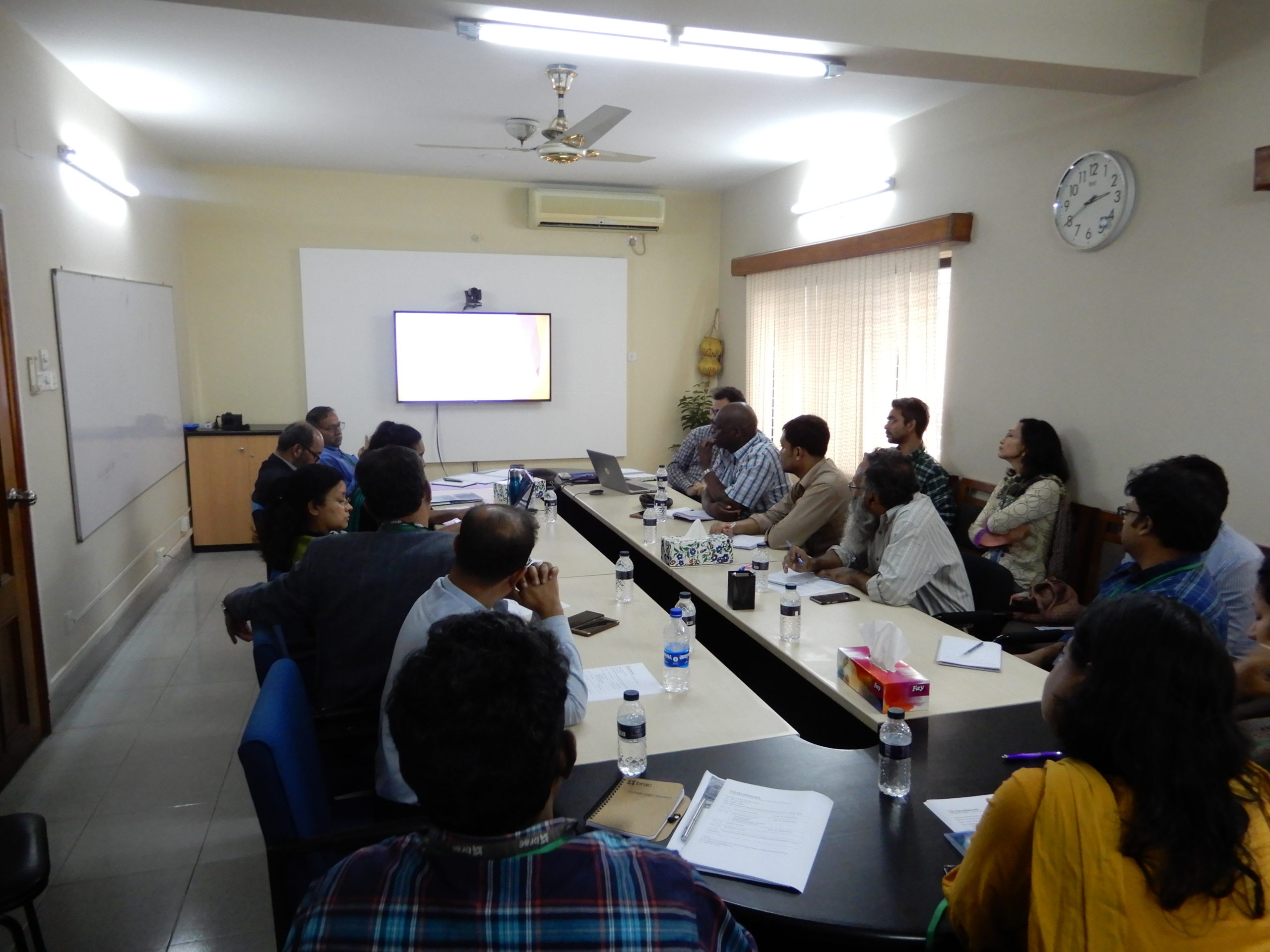
Firstly, in Australia, there are still many people who deny climate change is real. And in the media, the matter is quite often referred to as a debate, as if there are still questions around whether it’s real or not.
Dr Huq, from the point of view of what Bangladesh is experiencing in regard to climate, what would you say to these people in Australia?
Nothing. They’re idiots. I’m not going to talk to them. They’re a waste of my time. There is no debate.
And from your perspective, why isn’t there a debate?
Because the science is very clear. Now, if they don’t believe in science, and they want to question science, then they’re on the wrong side. The science is very clear.
From your personal experience in Bangladesh, what sort of effects of climate change are you already witnessing?
We don’t have to see it in Bangladesh. Look at Australia. If they don’t open their eyes and look around and see the effects of climate change, they’re just ostriches putting their heads in the sand.
Don’t even cite Bangladesh. Cite Australia.
Okay, right now in Australia we’re experiencing unprecedented bushfires. But, when people have been raising climate as playing a factor in this our prime minister and other leaders have said the public isn’t allowed to speak about climate in relation to the crisis.
So, I’ll distinguish now, between people who may generally doubt, and people who oppose, like your prime minister. He’s a criminal.
Other people are idiots, because they don’t understand the problem. But, your prime minister is a criminal.
He understands. And he’s lighting the fire. He’s an arsonist. He’s actively lighting those fires. And when he said not to talk about it, he means don’t talk about my lighting the fire.
Your prime minister is saying, “I’m going to invest in coal, which causes the fires. And there will be more of them. So, don’t talk to me about it.”
He’s a criminal. An absolute criminal, who is in the pocket of the fossil fuel industry. And the fossil fuel industry are criminals.
The debate is between the criminals who are causing the problem and those making money out of causing it – the arsonists. And then there’s the victims.
There are also those people listening to the criminals and thinking maybe they’re right. Those people are idiots, because they’re not looking around them and seeing they’re wrong.
And in having said that, I’ve travelled to Bangladesh as it’s said it’s the country set to be hit hardest by the climate crisis. What’s happening here now? Why is Bangladesh set to be hit hardest?
There are two answers to your questions. Firstly, the reason why we are hardest hit is the geography.
Our location is in the path of three of the largest rivers in the world. We are susceptible to flooding, sea level rise, and in some parts of the country drought. Much of our population is made up of very poor people as well.
So, when you rank which countries are most vulnerable, because of the impacts and the number of people who are going to be impacted, Bangladesh ranks at number one or number two or number three: depending on the elements you focus on.
But, that’s an old story. It’s a fifteen-year-old story. We’ve known that for many years.
The new story is that we are not sitting idle. We’re preparing ourselves to deal with the issue. And we’re going up the learning curve very fast in dealing with the problem and finding the solutions.
The problem is yesterday’s narrative. Today’s narrative is finding solutions to the problem. And Australia is going to have to come to us to learn, because we are learning.
ICCCAD’s Gobeshona initiative is all about finding adaptations and solutions. What sort of impact has that initiative had since it launched in 2014? And what sort of solutions has it come up with?
When I say we, I mean the whole country. We have a major initiative on climate change called The Climate Change Strategy and Action Plan.
Gobeshona is the intellectual part of that. It’s the universities and institutes – well over 50 of them in the country – who do research on climate change.
This research is on solutions to climate change, not the problem of climate change. We used to do that 10 years ago. Now, we do solutions to climate change. And then provide those solutions to people.
So, the Gobeshona conference we’re about to have in January is about turning research into action. What we’re researching is what farmers, fishermen, the government and the private sector can do, in terms of dealing with the problem.
To give you one example of things that have already been done in the research to action arena, our Bangladeshi plant genetic researchers have developed a variety of saline tolerant rice, which can tolerate different levels of salinity in the water.
We’ve already seen these high saline levels in the low coastal parts of the country. They’re the most vulnerable parts of Bangladesh. There are millions of people there.
If you go there you see millions of farmers and millions of hectares growing an adaptive variety of rice that’s produced by the scientists, because the traditional varieties can’t stand the level of salinity that’s there. That’s adaptation at a scale of millions of people.
As I’ve already mentioned, the Australian government still denies climate change. What’s the position of the Bangladeshi government?
The Bangladesh government accepted climate change a long time ago and has become one of the most proactive governments in the world in dealing with it.
Ten years ago, in 2009, the government of Bangladesh brought local experts together and asked us to develop this strategy for them.
It was published as the Bangladesh Climate Change Strategy and Action Plan. And it identified six thematic areas and forty plus actions that could be taken.
Over the last ten years, the minister of finance has been putting $100 million of our own money into promoting these actions and the research that’s enabling us to tackle climate change. And as a result, we are now in a position to find ways to tackle the impacts of the change.
Climate change is happening. But, Bangladesh is getting better and better at tackling the problem and getting over it.
And so, in our formulation of the narrative of Bangladesh, we used to be the most vulnerable country in the world. We still are. But, we are on our way to becoming the most resilient country. We are actively going up the learning curve on how to deal with the problem very fast.
And lastly, Dr Huq, when people in Australia currently talk about the climate crisis, or hear about the vast issues that your country is facing, there’s a feeling of despair. But, in speaking to you, you don’t seem to be coming from a perspective of hopelessness. Is that the case?
That’s absolutely correct. I’m extremely optimistic. So, let me reframe what I am talking about.
Climate change is a global problem. And my analogy for it is that it’s like an alien force attacking planet Earth. And it doesn’t matter which country you live in, ultimately, everybody everywhere is going to be affected by this alien invasion.
And in slightly nuancing this alien invasion metaphor, the initial alien spaceships have arrived. One of them landed in Bangladesh ten years ago. And we’re learning the aliens’ weak points: how to combat them.
And they’ve already gone to Australia, but Australia doesn’t want to recognise it. But, they’re also going to go to Washington, London, Berlin and everywhere. And when it comes to them, they will want to know how to tackle it. And they will then come to us.
We’ve been tackling it. We’ve been finding solutions to deal with it. And the solutions, by and large, are really not that technical.
It’s all about understanding the problem, figuring out how we’re going to tackle it and being ready for it. And when it does come, there’s still a problem, but it’s much less impactful, because we know what to do.
I’ll give you another example. We got hit by Cyclone Bulbul just a few days ago. And on your smartphone you can go to a website called Windy.com and you can track it: where it is and where it is coming from.
I also know where my nearest cyclone shelter is and how long it’s going to take to get there. So, I know exactly when I have to start going there. And two million people were in cyclone shelters, when the storm came.
That’s people’s knowledge. That’s a population that knows what they’re doing. Obviously, there are satellites to track it and cyclone shelters to take people to shelter in. But, the most important ingredient is people being aware of the problem and knowing what to do when the problem comes.
No other country in the world has as sophisticated and capable a warning system on cyclones as Bangladesh.
We used to get hundreds of thousands of people dying. Nowadays, well, only 13 people died due to Bulbul.


